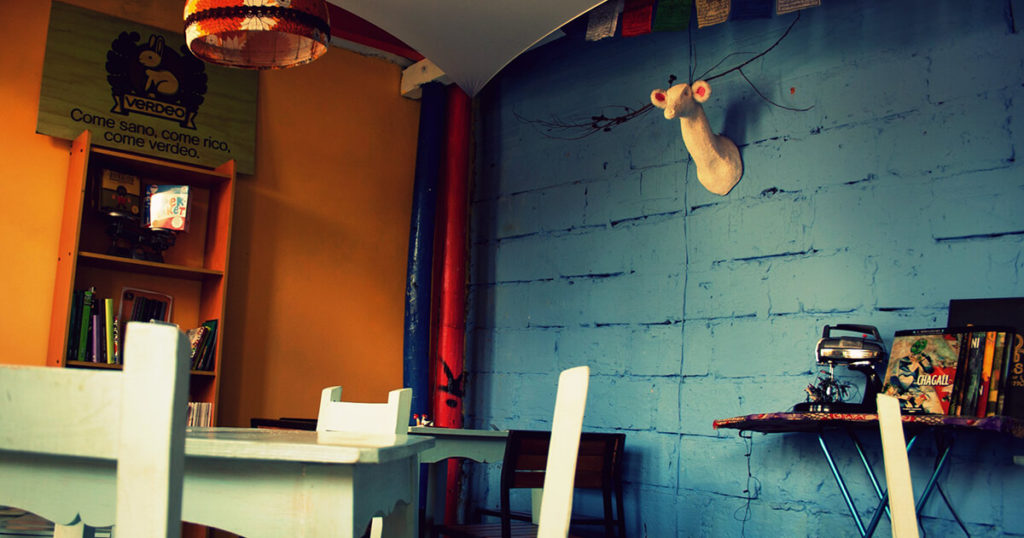
On visits to my hometown in the States, I like to walk along the residential streets at dusk, when the lights coming on in houses show people moving through their living and dining rooms and kitchens, as if on a stage. With the passing minutes, the lit scenes brighten in contrast to the growing gloom of the street, making them appear both invitingly tangible and somehow insubstantial. No wonder they look cozy, but not quite real.
Would I even know cozy, though, were I to see it? Trying to picture the last cozy place I’ve been, or the coziest ever, I keep coming up with almost cozy, like the guest ranch where my folks took my boys and me a few years ago. It was big and beautiful, all logs and planks, hearths and rugs, and after wandering long halls with bookcases and glass-globed wall lamps, wandering some more and discovering the library off at one end and a western-styled parlor here and there, I returned to the main room and plopped myself down in a very comfortable armchair beside a great stone fireplace and looked around in satisfaction. Here, as in every room and every passageway of this lodge, were rocking chairs or sofas or armchairs, angled to receive you should you wish to stop a moment and think about how lovely and tasteful everything was. We had the place to ourselves, and it was total, over-the-top luxury for me, but not quite cozy. Perhaps a bigger person, perhaps a giant, say, or an octopus with arms to caress the lovely things all at the same time, might find it so.
The closest to cozy ever was probably one of my grandmothers’ homes, which I remember fondly from my childhood, but maybe it was the laps where I snuggled that were cozy, not the houses. Nowadays, the more I look for coziness, thinking I could content myself with fairly cozy, the stronger my doubt that “most” or “somewhat” apply to cozy. Cozy, it seems, like dreadful, delicious, or fantastic, does not admit of degrees. Such adjectives are called non-gradable. Terrifying, amazing, and perfect—they all already contain the idea of very, and rather than the whole range of adverbs to modify them, we have a choice few to reinforce this: absolutely, perfectly, totally. There is no sort of cozy, no fairly, no immensely. Just cozy, absolutely and perfectly, or sadly not, and until you sink down satisfied, protected, complete, wanting nothing further—until that sigh, signaling that you have found contentment, you don’t know cozy. A great hall and soft armchair aren’t in themselves enough, not if you are alone and the fire’s never been lit or has gone out.
The word in Spanish for cozy is acogedor, and the verb that’s behind the adjective, acoger, means to welcome or take in. Because people here don’t usually live in houses and when they do, high hedges or walls protect them from envious peeking, the place to look for cozy is the neighborhood bar, where so much of life is lived. The bar is the place for your mid-morning coffee, a card game in the afternoon, a drink any time of day, and the news of the neighborhood. You can meet friends, read the newspaper, flirt with the help, and listen to the gossip. Funeral notices are posted on the walls, as are announcements before local festivals and the pictures afterward. The bars come in all sizes and styles, so finding one to meet my definition of cozy shouldn’t be so hard. I’ve dreamed I’ll sink into some corner chair in some new but intimately known room and sigh, finally contained and coddled, close and warm, and feel no need to rise. Looking in from outside, I ask myself whether I could settle happily ever after in such a room as this one. Would it perfectly suit me and anticipate me and understand me, feel with me, breathe with me?
The answer is usually a cautious negative. “Maybe not you, but possibly someone like you,” I tell myself, wondering if, with a small adjustment, I could be that person. I find, however, that no matter how much I change, I’m never that other—a similar sister, a matching friend—never that someone like me, but still just me.

